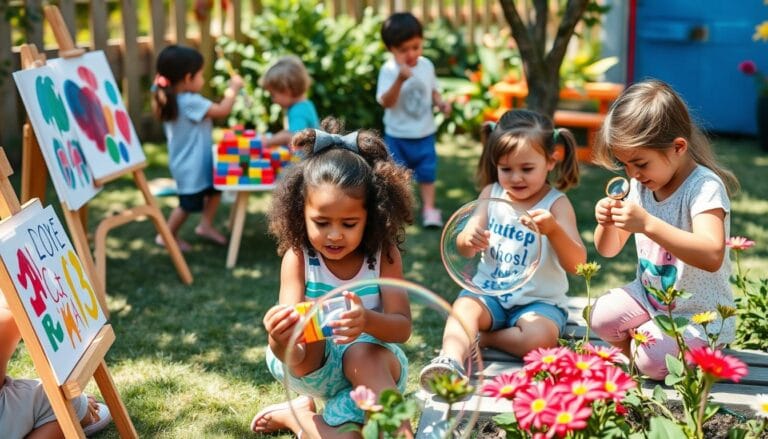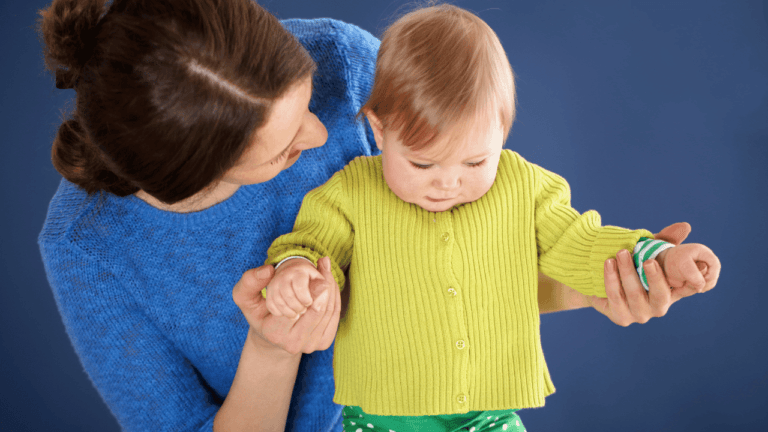
Supporting Kids’ Mental Health Tips & Strategies
Kids’ Mental Health Support Ensuring the mental health of our children is of utmost importance. As parents, it is crucial that we provide the necessary support to promote their emotional wellbeing and overall mental wellness. By implementing different strategies, we can create a nurturing environment that encourages their growth and development.
Key Takeaways:
- Kids’ Mental Health Support Model healthy coping skills to teach children how to deal with their emotions.
- Watch for behavior changes that might indicate underlying difficulties.
- Keep communication open and honest to foster a safe and supportive space.
- Create a routine and set clear boundaries to reduce stress and frustration.
- Let children know they are loved and supported unconditionally.
Model Healthy Coping Skills
Parents play a crucial role in helping their children develop healthy coping skills to navigate their emotions effectively. By modeling these skills, parents can provide their children with valuable strategies for managing stress and promoting emotional well-being. Here are some techniques that parents can demonstrate to their children:
- Deep Breathing: Teach your child the power of deep breathing to calm their mind and body. Encourage them to take deep breaths in through their nose, hold for a few seconds, and then exhale slowly through their mouth. Practicing deep breathing can reduce anxiety and promote relaxation.
- Stress Balls: Introduce stress balls as a sensory tool to help your child release tension and stress. By squeezing and manipulating the stress ball, they can channel their energy into a physical action, providing a calming effect.
- Art Therapy: Engage your child in art therapy activities such as painting, coloring, or doodling. Art therapy allows children to express themselves creatively, releasing emotions and promoting self-reflection.
- Walking: Encourage your child to engage in regular physical activity, such as going for walks. Walking not only helps release endorphins, which elevate mood, but also provides an opportunity for quiet reflection and a change of scenery.
By demonstrating these coping skills, parents can equip their children with valuable tools to navigate challenging emotions in a healthy and constructive manner.
The Power of Art Therapy
Art therapy is a powerful technique for promoting emotional well-being and self-expression in children. By encouraging creative activities like painting, coloring, and doodling, children can explore their feelings and experiences visually, without relying solely on verbal communication. Art therapy allows children to express themselves freely, processing emotions and finding solace in creativity.
Kids’ Mental Health Support Watch for Behavior Changes

While it’s normal for children to go through changes in behavior as they develop, it’s essential for parents to watch for significant behavior changes that may indicate underlying difficulties. Becoming more withdrawn or isolated can be a red flag that your child is struggling and may need support.
In such situations, it’s crucial for parents to offer a safe space for their child to open up and communicate. Let them know that you’re there for them and ready to provide the support they need. Actively listen to their concerns, validate their feelings, and encourage them to express themselves.
To better assess your child’s behavior changes, pay attention to the following signs:
- Avoiding social activities and friendships
- Loss of interest in hobbies or activities they used to enjoy
- Frequent mood swings or emotional outbursts
- Changes in appetite or sleep patterns
- Decreased concentration or academic performance
By closely monitoring these behavior changes and offering support, you can help your child navigate through difficult emotions and challenges they may be facing. Remember, your unconditional support and understanding are crucial in their journey towards better mental health.
| Signs of Behavior Changes | Supportive Actions |
|---|---|
| Avoiding social activities and friendships | Encourage social interactions, arrange playdates, and involve them in activities they enjoy. Help them build new friendships and connections. |
| Loss of interest in hobbies or activities they used to enjoy | Explore new interests together and engage in activities as a family. Encourage them to pursue their passions and provide opportunities for them to participate in their favorite activities. |
| Frequent mood swings or emotional outbursts | Teach them emotional regulation techniques such as deep breathing exercises or journaling. Create a calm and supportive environment for them to express their emotions without judgment. |
| Changes in appetite or sleep patterns | Establish a consistent daily routine for meals and bedtime. Encourage a balanced diet and ensure they get enough sleep each night. Consult a healthcare professional if necessary. |
| Decreased concentration or academic performance | Offer assistance with schoolwork, help them organize their tasks, and establish a suitable study environment. Communicate with their teachers to ensure they receive appropriate support at school. |
Keep Communication Open and Honest

To support children’s mental health, it’s crucial for parents to keep communication open and honest. Children should feel comfortable approaching their parents with any issues, knowing that they will be listened to and supported without judgment. Creating a safe and non-judgmental space for children to express themselves can increase the likelihood that they’ll seek support when needed.
Open and honest communication helps parents understand their children’s emotions, concerns, and challenges. It allows parents to provide guidance, reassurance, and support in a way that empowers children to navigate their experiences effectively.
Benefits of Open Communication
- Encourages trust and strengthens the parent-child relationship
- Reduces feelings of isolation and loneliness
- Promotes emotional intelligence and self-awareness
- Enhances problem-solving skills and resilience
- Improves mental health outcomes and overall well-being
When communication is open and honest, children feel validated and understood. It fosters a sense of belonging and security, creating an environment where children are more likely to seek guidance and support from their parents.
In addition to verbal communication, parents can also leverage other modes of expression, such as writing or drawing, to encourage their children to share their thoughts and feelings. These alternative forms of communication provide additional outlets for self-expression and can often facilitate meaningful conversations.
Parents should actively listen to their children, offering their undivided attention and acknowledging their emotions without judgment. This creates a safe space for children to openly express themselves without fear of repercussions. Remember, effective communication is a two-way street that requires active listening, empathy, and validation.
By promoting open and honest communication, parents can establish a strong foundation for their children’s mental health. When children feel heard and supported, they gain the confidence to navigate challenges, manage stress, and foster healthy relationships. It’s a powerful tool that helps build resilience and promotes overall well-being.
Create a Routine and Set Clear Boundaries at Home
Uncertainty about day-to-day schedules can lead to stress and anxiety for children. Creating a routine at home can provide a sense of security and reduce stress for children. Additionally, setting clear boundaries can help children understand what is expected of them and minimize feelings of frustration. Having a structured environment can contribute to children’s mental wellbeing.
When children have a routine, they know what to expect and can anticipate each day’s activities. This predictability helps reduce stress and anxiety, as children feel a sense of control and stability. A routine also provides a framework for the day, ensuring that important tasks, such as schoolwork or chores, are completed.
Moreover, setting clear boundaries helps children understand their responsibilities and limits. When children know what is expected of them, they are less likely to feel overwhelmed or frustrated. Clear boundaries also teach children about respecting others’ boundaries, promoting healthy relationships and communication.
Creating a routine and setting clear boundaries can be achieved through several strategies:
- Establish a consistent daily schedule: Set specific times for waking up, meals, homework, playtime, and bedtime. Consistency helps children develop good habits and reduces uncertainty.
- Communicate the schedule to your child: Discuss the daily routine with your child, explaining the different activities and their timeframes. This helps children feel informed and involved in the process.
- Involve your child in creating boundaries: Discuss and establish rules together, allowing your child to have input. This fosters a sense of ownership and responsibility.
- Use visual aids: Create a visual schedule or chart that outlines the daily routine and boundaries. Visual aids can be especially helpful for young children or those with learning differences.
- Consistently reinforce boundaries: Be consistent and firm in enforcing the set boundaries. Consistency helps children understand that the rules are non-negotiable and contributes to their sense of security.
By creating a routine and setting clear boundaries, parents can reduce stress, frustration, and uncertainty for their children. A structured environment promotes a sense of stability and security, contributing to children’s overall mental wellbeing.
Let Them Know They are Loved and Supported
One of the most important things parents can provide to their children is an environment where they feel loved and supported. Children need to know that they are important and that they are valued no matter what. This creates a sense of security and safety for children, which is crucial for their mental wellbeing.
When children feel loved and supported, they develop a strong foundation of self-esteem and resilience. They learn to trust their abilities and navigate life’s challenges with confidence. Parents can show their love and support through both words and actions.
Expressing love can be as simple as saying “I love you” or giving hugs. Taking the time to listen and be present for your child is another powerful way to show support. Engaging in activities together, such as playing games, going for walks, or having family meals, can strengthen the parent-child bond.
It’s important to create an environment where children feel comfortable expressing their emotions and thoughts without fear of judgment or rejection. Validate their feelings and let them know that it’s okay to experience a range of emotions. Encourage open communication and active listening.
Providing a safe and nurturing home environment can have a lasting impact on children’s mental health and overall wellbeing. The love and support they receive from their parents lay the foundation for healthy relationships and emotional resilience throughout their lives.
Nurturing Love and Support: Tips for Parents
- Express love through both words and actions, such as saying “I love you” and giving hugs.
- Create a safe and judgment-free space for your child to express their emotions and thoughts.
- Take the time to listen actively and be present for your child.
- Engage in activities together to strengthen the parent-child bond.
- Validate your child’s feelings and let them know it’s okay to experience a range of emotions.
- Encourage open communication and active listening.
- Provide a consistent and nurturing home environment.
Conclusion
Kids’ Mental Health Support is crucial for their overall wellbeing. By implementing a variety of strategies, parents can actively contribute to their children’s emotional wellbeing. Modeling healthy coping skills, such as deep breathing and engaging in art therapy, can help children learn how to manage their emotions effectively.
In addition, parents should watch for behavior changes in their children, as significant shifts may indicate underlying difficulties. Keeping communication open and honest creates a safe space for children to express themselves and seek support when needed.
Creating routines and setting clear boundaries at home provides structure and reduces stress, while demonstrating love, support, and providing positive feedback helps children feel valued and secure. Encouraging physical activity and regularly discussing emotions and feelings further enhances their emotional wellbeing.
By taking proactive steps to support kids’ mental health, parents can make a significant difference in their children’s overall development and happiness. Implementing these strategies fosters a healthy and positive environment where children can thrive emotionally.
FAQ
How can parents Kids’ Mental Health Support?
Parents can Kids’ Mental Health Support by modeling healthy coping skills, keeping communication open and honest, creating routines and setting boundaries, providing love and support, giving positive feedback and encouragement, encouraging physical activity, and discussing emotions and feelings regularly.
What are some examples of healthy coping skills?
Examples of healthy coping skills include deep breathing, using stress balls, engaging in art therapy (painting, coloring, doodling), and going for walks. These strategies can help children cope with their feelings.
What should parents watch for in terms of behavior changes?
Parents should watch for significant behavior changes, such as becoming more withdrawn or isolated. These changes may indicate that children are experiencing difficulties that they don’t know how to handle.
How can parents keep communication open and honest with their children?
Parents can create a safe and non-judgmental space for children to express themselves, ensuring that they feel comfortable approaching their parents with any issues. This open and honest communication increases the likelihood that children will seek support when needed.
How can creating a routine and setting boundaries help children’s mental wellbeing?
Uncertainty about day-to-day schedules can lead to stress and anxiety for children. Creating a routine at home provides a sense of security and reduces stress. Additionally, setting clear boundaries helps children understand expectations and minimizes frustration.
How important is it for children to feel loved and supported?
Feeling loved and supported is crucial for children’s mental wellbeing. Knowing that they are important and valued creates a sense of security and safety for children.
How can parents take proactive steps to support kids’ mental health?
Parents can take proactive steps by implementing strategies such as modeling healthy coping skills, watching for behavior changes, keeping communication open and honest, creating routines and setting boundaries, providing love and support, giving positive feedback and encouragement, encouraging physical activity, and discussing emotions and feelings regularly.











